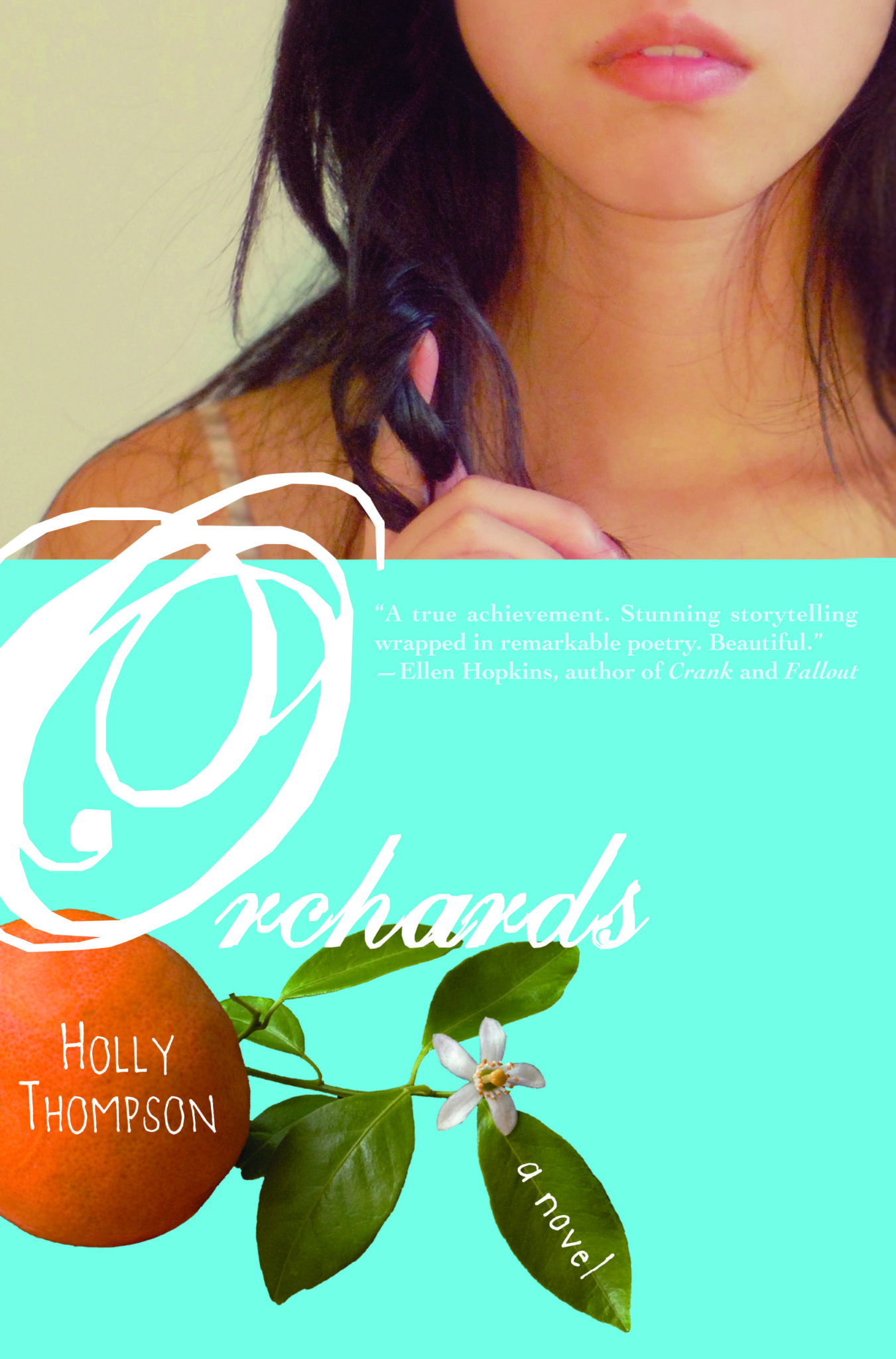Orchards Book Review
Bibliography
Thompson, Holly. Orchards. Random House LLC, 2012.
ISBN: 978-0385739788
Plot
Kanako, an eighth grade girl, is of Jewish and Japanese heritage. While attending a private middle school in New York, one of her classmates commits suicide. To help her process and grieve the situation, Kana’s parents send her to Japanese grandparents in Japan. There, Kana works on the family farm and spends time with family members. Her time in Japan leads to growth in more ways than she thought of, as well as surprising new developments in her relationships with her family and friends.
Critical Analysis
The poetry is written in free verse, which suits the voice of an eighth grader. Throughout the book, the halting stanza’s lend an image of a young girl who is caught between two worlds, unsure of herself and what to do. At times, a single line on the page conveys the breathlessness of grief, how it can overtake the mind so that a person is capable of thinking only one thought. The rhythm of the book, with its repeating ideas and short phrases blending into sentences, creates an ongoing feeling that readers may recognize as gaining an understanding of an event. The emotions of grief and confusion are present in the novel in verse. However, the poetry also invokes emotions of happiness, calm, and feelings of safety. Tied to the place of Japan and the family of characters, these more pleasant feelings lead to the belief that family, hard work, or quiet places bring healing. The theme of forgiveness, is the ultimate purpose of the poetic book. Forgiveness is demonstrated from the beginning when Kana must forgive her parents for sending her away, to her grandmother forgiving her daughter, to the finale, when Kana teaches a friend how to forgive himself. Accompanied by gray-scale illustrations along the edges of the pages, this novel in verse is a splendid example of resiliency, forgiveness, and how to heal after tragedy.
Personal Response
This book stayed with me long after the evening I read it. The stories that matter are often stories which mirror an aspect of your own character or personhood. This was the case with the character of Kana; I have often found myself thinking circularly about an event that was difficult to understand or process. The family within the pages of the novel seems based on a real life family, with differences and arguments, tough love and gentle sympathy. The best part of the book was the example that her grandmother set, and the wise words she shares with Kana to help her make sense of her situation.
Excerpts of Reviews
"Thompson has crafted an exquisite, thought-provoking story of grief and healing that will resonate with teen readers and give them much to discuss."
School Library Journal
“Compelling. . . . Teens who enjoy learning about other cultures will relish Thompson’s ability to evoke the sights, smells, and tastes of Japan, while poetry fans will enjoy the novel’s unique format.”
VOYA
"This lyrical look at bullying and the aftershocks of suicide may be gut-wrenching, but Orchards is crafted with a sensitive beauty."
Winston-Salem Journal
“Understated yet potent verse.”
Publishers Weekly
Connections
- Get to know the author and behind-the-scenes look at the making of the book with an author interview: http://www.teachingbooks.net/book_reading.cgi?id=7300&a=1/. Children can interview another person and write a poem about their life events.
- Prompt a discussion about family members and children’s interactions with them. How do they feel about them? Do they understand them most of the time? What does being a part of a family mean to them?
- Read another novel in verse by Holly Thompson, The Language Inside, and compare both the stories and the poem structure.
- Discuss with children the impact of moving so far away from home and familiarity.
- Read another novel in verse dealing with “third culture” teens, or teens who are part of two distinct cultures. Suggestions include, Seeing Emily by Joyce Lee Wong, and Home of the Brave by Katherine Applegate.

No comments:
Post a Comment